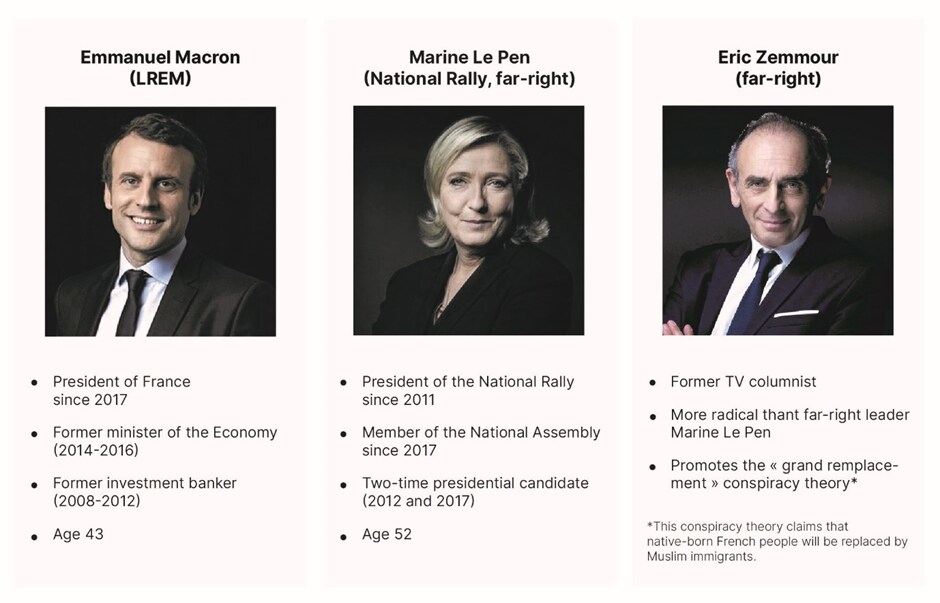French Election Preview published: We have recently published our preview for the 2022 April presidential election. It gives a broad overview of the current state of French politics and the main reforms which are currently put forward by the lead candidates. See here for the full report.
The message of the polls: In a BVA poll released on 11 October, Macron is still miles ahead of the pack, at 26%. He has a strong electoral base. Marine Le Pen and Eric Zemmour are almost neck-to-neck, at 16% and 14% respectively. Support for Xavier Bertrand, which was stable around 14% in the previous months, is falling at 12%. In our view, the center consolidates around Macron who is better placed to beat the far-right candidates Le Pen and Zemmour in the second round. This can partially explain Bertrand’s loss of momentum. His lack of charisma is another explanation. The left and far-left candidates are far behind. The winner of the Green primaries, Yannick Jadot, is at 8%. The third man of the 2017 presidential election, Jean-Luc Mélenchon, is at 8% too. The Socialist Paris mayor, Anne Hidalgo, is only at 4%. Unless there is an unexpected turn of events, they are unlikely to play a major role in the presidential election.
The Zemmour boom has paused for now: Taking into account all of the most recent polls, Zemmour is no longer rising. But it is too early to say the Zemmour boom is over. According to the well-known Foundation for Political Innovation, 55% of voters want a presidential candidate that does not belong to a political party. Mistrust in political parties is very high. This can benefit to Zemmour. He is relatively new in politics. He runs as an independent candidate. He portrays himself as the only true “anti-system” candidate in the election too. This represents a serious threat to Le Pen’s candidacy. In our view, Le Pen softening the tone was the wrong tactic to gather the “screw the system” forces in France. She is not promising to pull France out of the eurozone. More recently, she has also softened criticism of the EU. She no longer urges to end the Schengen agreement on open borders and defends the free movement of people within the EU – but limited to EU citizens. She now appears as a moderate candidate regarding economics but also immigration. Zemmour and Le Pen’s allies call for opening coalition negotiations in February 2022, three months before the election date. The least well-placed candidate would step aside in favor of the candidate best placed to go through to the second round. We doubt that such negotiations will succeed. The hubris will play an important role. Both are big ego-candidates. Momentum is on Zemmour’s side rather than on Le Pen’s side, for now. In addition, this is the third and likely last Le Pen’s presidential candidacy. If she withdraws, her political career is over. No matter whether Le Pen or Zemmour will make it to the second turn, we expect Macron’s will be re-elected for a five-year term until 2027.
What to watch now: Besides the polls, we are focused on the primaries of the centre-right Les Républicains scheduled for 4 December. Six candidates are running: Bertrand, the former EU Brexit negotiator Michel Barnier, the deputy Eric Ciotti, the head of the Ile-de-France region Valérie Pécresse, the famous doctor and former EU deputy Philippe Juvin and the serial entrepreneur Denis Payre. Initially, Bertrand did not look for Les Républicains’ endorsement. But his fundraising campaign has never kicked off. He now needs funding from the party to continue the campaign. The final battle will oppose the first three candidates, in our view. Expect Bertrand to ultimately win. However, it is unlikely to change the dynamics of the presidential race. Support for Bertrand has never really increased since has officially announced his candidacy for President in March 2021.





